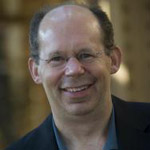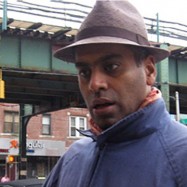New York’s record-breakingly low homicide total in 2012 is the culmination of a nearly two-decades long victory over crime. Since the early 1990s, crime in the city has dropped nearly 80 percent.
No other city comes close to matching New York’s crime-fighting success, which has lasted twice as long and has been twice as deep as the national average. The cause of that crime drop is the intense, data-driven style of policing that the New York Police Department adopted in 1994. Only the NYPD’s unflagging commitment to proactive policing distinguished New York from the rest of country over the last two decades. Poverty, economic inequality, and every other alleged “root cause” of crime stayed constant in New York, and at levels significantly higher than the national average, even as crime itself plummeted.
The goal of preventing crime before it happens is a central component of New York policing. If senior citizens have been targeted for robberies in a particular neighborhood, for example, an officer who sees someone walking closely behind an elderly woman looking furtively over his shoulder might stop that person and ask him a few questions. If the officer has further grounds for suspecting that the individual might be armed, he will frisk him. These proactive stops have deterred many criminals from carrying guns, by their own admission. As a result, shootings reached their lowest level in 2012 since data was first kept in 1993.
The New York crime drop has disproportionately benefited the city’s poorest neighborhoods, since that is where most crime occurs. Blacks and Hispanics have made up 79 percent of the decline in homicide victims since 1993. Over ten thousand minority males are alive today who would have been killed had homicide levels remained at the early 1990s levels. For that reason, though the NYPD’s stop, question, and frisk policy has been controversial, it is easy to find others who fully back the department’s determination to intervene in suspicious behavior before it develops into a crime.
To be sure, being stopped if you are innocent of any wrongdoing can be infuriating and even frightening. Officers too often fail to explain to the person stopped why he was approached in the first place. The NYPD, like every police department, needs to constantly reinforce in its officers the duty to treat civilians with courtesy and respect.
But just because the person stopped was not in fact engaged in a crime does not mean that the stop was illegal; the “reasonable suspicion” standard does not require absolute certainty that a crime is afoot before an officer may stop a pedestrian. And just because someone was not arrested or summonsed after a stop does not mean that no crime was occurring. Someone casing a victim or acting as a lookout on a drug set will not necessarily have any evidence on him to justify an arrest, but questioning him will likely disrupt a crime in progress.
The New York crime triumph is the biggest public policy success of the last quarter century, one that shows that high rates of violence are not an immutable feature of urban life.
Heather Mac Donald is a conservative columnist whose writing focuses on crime, policing, homeland security and immigration. She is a fellow at the Manhattan Institute and a contributing editor of City Journal, a quarterly publication devoted to culture, urban affairs, and civic life. Mac Donald is the author of Are Cops Racist? How the War Against Police Harms Black Americans.







